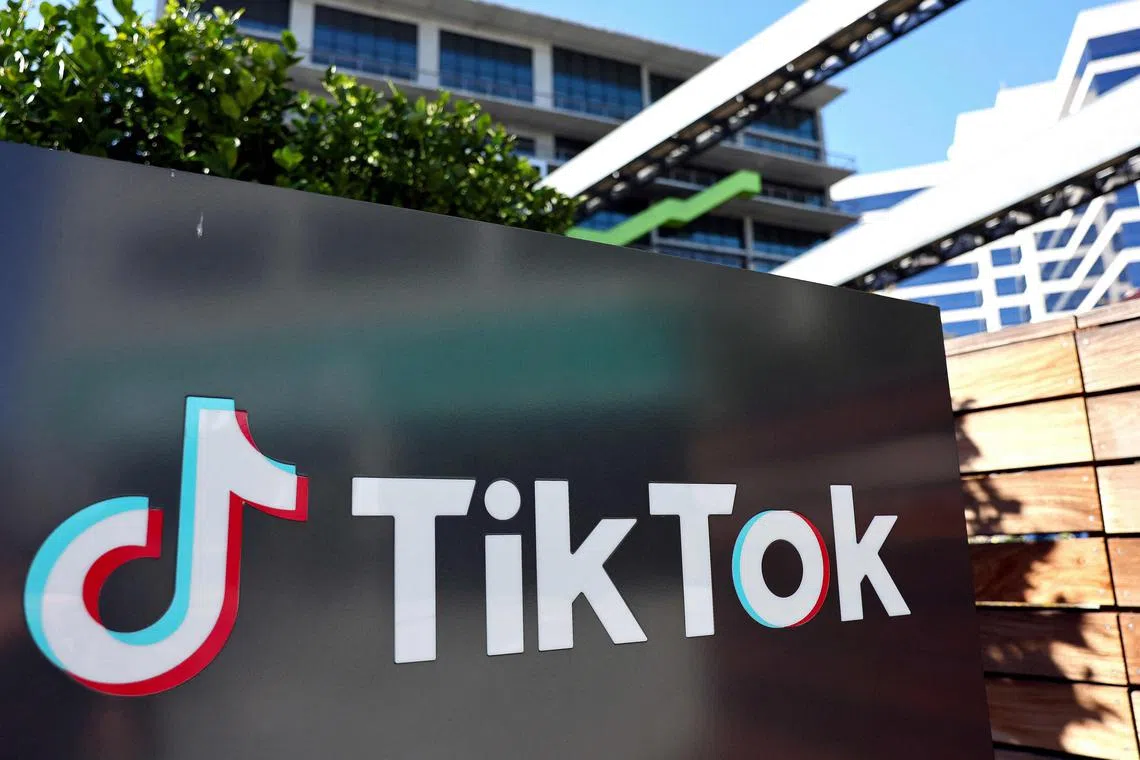TikTok ban in US govt phones advances, threatening company’s ad revenue
Sign up now: Get ST's newsletters delivered to your inbox

The move is the latest US effort to crack down on the popular social media platform.
PHOTO: AFP
Follow topic:
WASHINGTON – A proposal to bar US federal employees from using Chinese app TikTok on government devices looks set to become law, threatening to deal a blow to the firm’s reputation and scare off advertisers even if it will not affect many users, experts say.
US lawmakers on Tuesday included the proposal in a key spending Bill, virtually ensuring its passage this week after a Senate vote to green-light a similar measure.
The move is the latest US effort to crack down on the popular social media platform,
While the new federal ban is not expected to put a significant dent in TikTok’s estimated 130 million American users, experts said the measure could damage the company’s reputation that could, in turn, scare away valuable advertisers.
“That is what TikTok is at massive risk of – having that brand reputational (blow) impact the overall revenue monetisation that they can make,” said Ms Eunice Shin, a partner at brand strategist Prophet.
TikTok said it was “disappointed that Congress has moved to ban TikTok on government devices - a political gesture that will do nothing to advance national security interests - rather than encouraging the Administration to conclude its national security review”.
The ban was tucked into a huge omnibus measure to fund US government operations that is to be voted on this week and then sent to President Joe Biden for his signature. The Bill gives the White House Office of Management and Budget 60 days “to develop standards and guidelines for executive agencies requiring the removal” of TikTok from federal devices.
Many federal agencies, including the White House and the Defence, Homeland Security and State departments, already ban TikTok from government-owned devices.
“The ban is minimal, extraordinarily minimal on the overall TikTok user base,” said Mr Matthew Quint, a brand expert at Columbia Business School. “The question is more, ‘will this action get the ball rolling to create a bipartisan movement to fully ban the service because of a potential threat to national security?’”
Prior attempts to ban the app have run up against free speech concerns.
In 2020, then President Donald Trump attempted to block new users from downloading TikTok and to ban other transactions that would have effectively barred the app’s use in the United States, but he lost a series of court battles in part on free-speech grounds.
Efforts to ban the app have gained steam in recent weeks after FBI director Christopher Wray said in November that it poses national security risks, flagging the threat that the Chinese government could harness the app to influence users or control their devices. REUTERS

